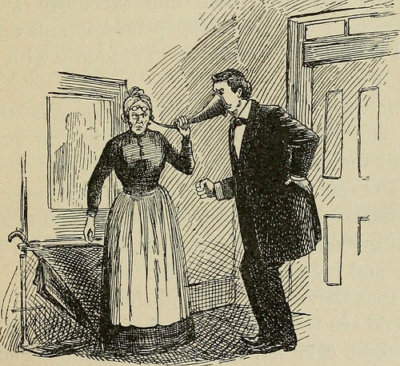Bad at Dealing With Conflict? Here’s Why
by Andrea M. Darcy
Want to be good at dealing with conflict, but lose your way every time?
Why Conflict Gets the Better of You
What is it that makes conflict so hard for you compared to others?
1. You go too fast.
If you rush into conflict as soon as something upsets you – if you barge into your colleagues office, or phone that family member immediately? It’s unlikely you will do well in the ensuing conflict.
While most of us would love to be so in charge of our emotions and thoughts we could handle conflict immediately, the truth is that most of us need a moment to sort out just what we are upset about, and how we can best express it.
Something like mindfulness can be a great start to learning how to take a breath and step back before conflict, and can mean it is less likely you’ll say things you regret.
2. You are bringing old emotions to the scene.
Often told you overreact? You are too emotional? You ‘make a mountain out of a molehill’? But confused by this feedback as your emotions feel so real to you?
It could be a case of an unresolved past. Childhood trauma tucked away in your unconscious can create a myriad of big emotions that attach themselves to any present upset.
For example, if as a child you had an abusive or controlling parent, you might be very sensitive to someone telling you what to do. If your boss points out he told you he doesn’t want a cover page on a report you might feel very upset and storm out of the office. This might make sense to you, but if all your colleagues are shocked by your response, it’s worth considering where your big reactions truly come from.
3. You are actually being manipulative.
Manipulation – trying to force others to do what you want – never works well in conflict.
The other person will feel bullied and react strongly and you’ll have a blowout on your hands.
Can’t believe you are manipulative because you are ‘such a nice person’? Being ‘nice’ can be it’s own form of control if it involves making the other person into the bad/wrong one, or letting them know how much they ‘need’ you. Listen to your language. Do many of your sentences start with ‘you’? ‘You did this, you did that’? Are you blaming and criticising?
If this sounds like you, you might want to read about codependency, where someone needs the approval of others to feel good and will ‘nicely’ manipulate to get it.
4. You aren’t being honest about what you are really upset about.
Denial is a defense mechanism that protects us from facing things we are uncomfortable dealing with. When we are in denial our emotions don’t disappear – they just find another outlet.
If you find yourself constantly fighting about the same unimportant things again and again, it’s likely that you are in denial. A classic example is the couple who fight weekly about how to load the dishwasher properly, instead of facing the very real issue that they are no longer feeling connected to each other.
5. You can’t think or feel anything when conflict happens.
Do you go numb when faced with conflict? Find all your well-thought-out arguments have suddenly fled your head only to be replaced with cotton wool? Only know what you feel or meant to say a day or too later, when it’s too late?
It could be you suffer from what is called ‘dissociation‘ in psychology. This is a habit of ‘leaving the room’ when stress hits, that can almost feel as if you are floating out of your body and ‘watching’ yourself speak and act. It arises from childhood trauma and stress, where this sort of ‘exit route’ was the only way to survive. Of course when the brain continues the pattern into adulthood it is no longer so helpful.
6. You are too scared of upsetting others.

By: Kristin Schmit
Too properly navigate conflict you need to be able to set personal boundaries and state your own wants and needs.
If this is too hard for you, if you feel terrified to tell others no, then conflict will leave you depleted every time. You’ll walk away furious at yourself for again giving in or agreeing to things you didn’t mean to.
This sort of pattern can be a sign of a codependency issue, low self-esteem, or also a side effect of childhood abuse which left you feeling you had no real rights.
7. You have a psychological condition that makes conflict hard.
There are several psychological conditions that can cause someone to struggle with healthy conflict.
Adult ADHD causes impulsivity so you’ll rush into conflict without being able to stop yourself.
Borderline personality disorder leaves someone with both impulsivity and poor emotional regulation skills. This means not only do you ‘go off’ before you can stop yourself, your mood will go from zero to a hundred in record time.
In fact all personality disorders will, to an extent, make conflict hard. A personality disorder means you act and think in ways that are different to others, so it’s hard to understand others and be understood.
What can help me be better at conflict?
Self help books are a good place to start. Take the time to learn how to communicate more clearly, and how to navigate conflict under stress.
If this article has given you a sneaking feeling that your problem with conflict might be connected to unresolved issues in your past or a possible personality disorder, it’s a good idea to seek professional support. A well-trained counsellor or psychotherapist can create a safe and non-judgemental environment for you to get to the bottom of why you can’t handle conflict well.
Harley Therapy connects you to professional, friendly London-based therapists who can help you deal with conflict. Not in the UK? We can also put you in touch with online therapists.
 Andrea M. Darcy is a health and wellbeing expert, trained in person-centred counselling and coaching. She often writes about trauma, relationships, and ADHD, and advises people on how to plan their therapy journey. Find her on Instagram @am_darcy
Andrea M. Darcy is a health and wellbeing expert, trained in person-centred counselling and coaching. She often writes about trauma, relationships, and ADHD, and advises people on how to plan their therapy journey. Find her on Instagram @am_darcy







Hi..i don’t know where to start but I know now that I have a problem, I don’t know whether this started when I was young or what but I feel like I don’t need friends and whenever I have one I control them.. well I want to control everything, relationships don’t last I’ve been changing man and they all complain about my pride and now am working know what I don’t have a friend because “I believe that as a supervisor am not supposed to do any favours for anyone and am very harsh to everyone” guess what, they hate me all of them and maybe just maybe I don’t count my words when I talk I just do….so am alone at work and at home because when I knock of I go straight to my room and sleep and eat until I come back to work…every off I live that. i really don’t know what’s wrong with me maybe am just hurtless or jealous but honestly am tired of this life. Yes sometimes i feel like am fine i don’t need anyone but that’s not true, i even hate going home because i don’t wanna talk too much. so i grow up without a father he denied me and he was leaving happy ever after with his girlfriends and i was struggling with my mom and God Knows i didn’t want him dead…. i wanted him to see me growing up and working being beautiful and maybe just maybe he was going to play a good father role in life but no he just decided to die. and My mother was insulting me every time i make a mistake saying that am useless like my father.. and used to beat me very hard for no reason maybe she was taking out her fustrations on me.. so my life was never good
Hi Thandeka, it sounds really lonely. We want you to know that these are simply learned behaviour patterns and coping mechanisms and can be changed. It wouldn’t be easy, it would be a commitment, and hard work, but we feel that if you found a counsellor you felt you could grow to trust one day, and started to take it step by step, you’d see real results. Because this is not who you are. Nobody is born thinking, I want to be lonely, I want to push everyone away. We are born naturally wired for connection. We get this way because, like you say, we have hard experiences. We get hurt so bad, that we simply don’t know what to do. As a child we have so few decisions, so we have to resort ot coping mechanisms. We make a decision that it is ‘safer’ to keep everyone at arm’s length. And then our life becomes a cage of our own making. We grow up so used to hiding ourselves behind mean or aloof behaviour we simply don’t know how to stop. We are sure that the real you, buried behind that front, is someone other will like, just the way she is. Because we don’t have to be ‘nice’ or ‘good’ to be liked, we just have to be vulnerable, and honest. and we hope you gather the courage to find help to let that real self out. Best, HT.
Hi, my name is morynda and I am currently gonna graduate 8th grade, yay! But I’m really scared , because most of my friends might grow out, and conflicts at home will always be the same. Whenever I am confronted I start crying, even though I don’t want to, and I hate myself for that. For example, if a teacher point out that I need to focus on my work or stop talking and focus, I will kinda start to cry, but I don’t want to. It’s like a habit, I hate been the center of attention, especially by an adult that is JUST a teacher. It hurts o bad when that happens. Same thing as confrontation problems I guess. I also have trouble talking to other people. Once again, a teacher marked me absent for a class, ( I was at school, volunteer for a field day to help) so I was there but not really there, scared it would ruin my perfect attendance, I asked her about it. I found it very difficult to even bring up the topic to her, I stuttered very badly, I don’t even stutter I just cracked off and my mind would go blank it was a repeat of ummms and quiet. I avoided eye contact a lot. She felt intimidating , so I avoided eye contact and kinda fidget with my burn mark I got that morning. Just to distract me. When I finally told her she said it was just a placeholder to let her know, and then she said what exactly was the problem and I froze, and everything around me seemed to disappear or become too loud or to big, I I’d don’t know where I was. That phrase gutted me so much, I felt a giant lump in my chest, in the end I let her form my claim for me which was that I don’t want it to affect my perfect attendance. I was so weirded it out as to why that happened and why is avoided I contact so badly, but the. Again she was staring directly at me and her demeanor seemed confident and straight tot he point, I was scared and shaky pls help